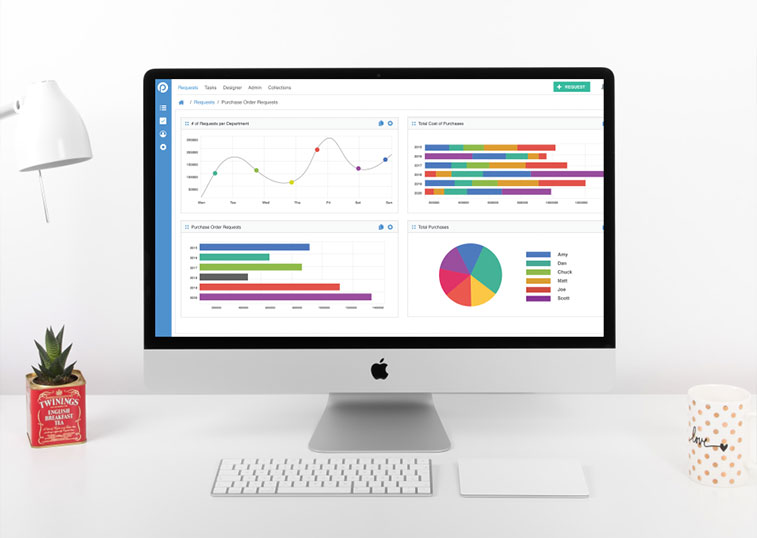Emerging Market Trends: Cryptocurrency
As markets change, it’s both exciting and fascinating to watch digital banking trends emerge. From the unique application of cryptos, the wide range of remittance and online payment options, to loans and smart contracts, digital banking is evolving at light speed. Today’s blog, the fourth on emerging market banking, will focus on cryptocurrency.
Cryptocurrency is another rising trend in emerging market banking. It’s an exciting new method of exchange, often tethered to the blockchain, that is poised to have a transformative impact on global commerce. Last year, this blog offered a primer on the Blockchain and its potential use in BPM. (Here’s the link.) Cryptocurrency and its blockchain connection to BPM make this an exciting tech stack for those in emerging markets; it has the potential to create the single most impressive redistribution of wealth across the globe should it take hold.
Pervasiveness of Cryptocurrency
The introduction of blockchain technology paved the way for cryptocurrency, resulting in the very public launch of a number of cryptocurrencies. According to AlliedCrowds “Cryptocurrency in Emerging Markets”, India has nine registered currencies, while emerging markets in Mexico, the Philippines, and Brazil each have three. Also, Russia is planning to launch Cryptobuble in 2019. The chart below depicts the pervasiveness of cryptocurrency as of late summer 2018.
Market Conditions
As the Cointelegraph has noted, the lack of infrastructure and abundance of mobile devices has given African customers more access to alternative forms of currency than traditional banks. These market dynamics have resulted in the launch of the African continent’s first cryptocurrency, Nuru Coin. According to Nurucoin.com, “Nuru Coin is positioned to help the SME market in Africa achieve an active part of this growing cross border trade by solving some of the cross border payment issues hampering our growth.”
In Central and South America, market conditions are beginning to shift as well. This past summer, the Huobi readied for entry to the Brazilian market. According to Bitcoinist, Chile has begun a movement to close three cryptocurrency exchanges. Reuters reports that Mexico’s senate has recently passed Latin America’s first Fintech law.
In Asia, McKinsey & Company reports that smartphone banking has overtaken digital banking. This trend has created an opportunity for purely digital institutions to gain a new hold on the market by reaching customers via marketing campaigns on social media and online advertising, reducing the cost of new customer acquisition. Further, McKinsey believes that banks who embrace digital marketing channels will be rewarded by meeting customers’ expectations and building loyalty.
Regulation
The rapid introduction of cryptocurrencies has more often than not been met with skepticism. Ecobank Transnational Inc reports that out of the 36 countries in which Bitcoin has been introduced, only South Africa and Swaziland have adopted favorable regulation toward it.
Volatility of Cryptocurrency
The introduction of new technologies, especially ones that could dramatically impact wealth on a global level, are proving to be highly volatile. According to thenextweb.com, hacks, regulatory uncertainty and advertising bans by significant media channels such as Google, Facebook and Twitter have all influenced cryptocurrency. Valuation of Bitcoin, presently the dominant cryptocurrency, has fluctuated by over $150 billion in six months’ time. The following chart by BlackRock Investment Institute compares the price volatility of US equities, gold and some of the leading cryptocurrencies.
Potential to Transform
These new cryptocurrency digital assets have the power to transform emerging markets. With cryptocurrencies, everybody in a market would have the ability to benefit from the prosperity of the digital age and access to commerce. It’s possible that the entrance to hundreds of thousands, or millions or billions of new individuals to the global economy could cause the world to experience the greatest reorganization of wealth and transformation of the global economy in history.
Making it Work
Knowing all of these trends is only helpful if you act on them. So, here are some thoughts on how to translate all of these trends into action.
- One way to get moving on the journey to digital commerce is for banks to conduct an audit that identifies how many internal and external platforms are in use.
- Evaluate the goals for each tool’s use against strategic direction and market forces. Weigh each solution’s usefulness against strategies as well as dependencies on various infrastructure components. Which solutions play to your organization’s strengths? Which are essential to acquiring and serving customers?
- Consider how well each solution utilizes mobile and digital technologies to deliver value directly to customers.
- Do current Fintech solutions interact with each other or is data siloed?
- Are paper-based processed eliminated? If not, make plans to do so with urgency to become more efficient, and more importantly, more competitive.
- Has your organization built digital workflows?
After performing a thoughtful and thorough evaluation, make a list of what needs to be automated and prioritize it. Then, it’s time to get to work.
Next in the series
So far, this blog series has covered mobile banking, microcredit, and cryptocurrency. Next up will be a discussion of platform economies and how they are influencing emerging market banking. Digital trust, liquid workforces, and intelligent automation topics will round out the series.



